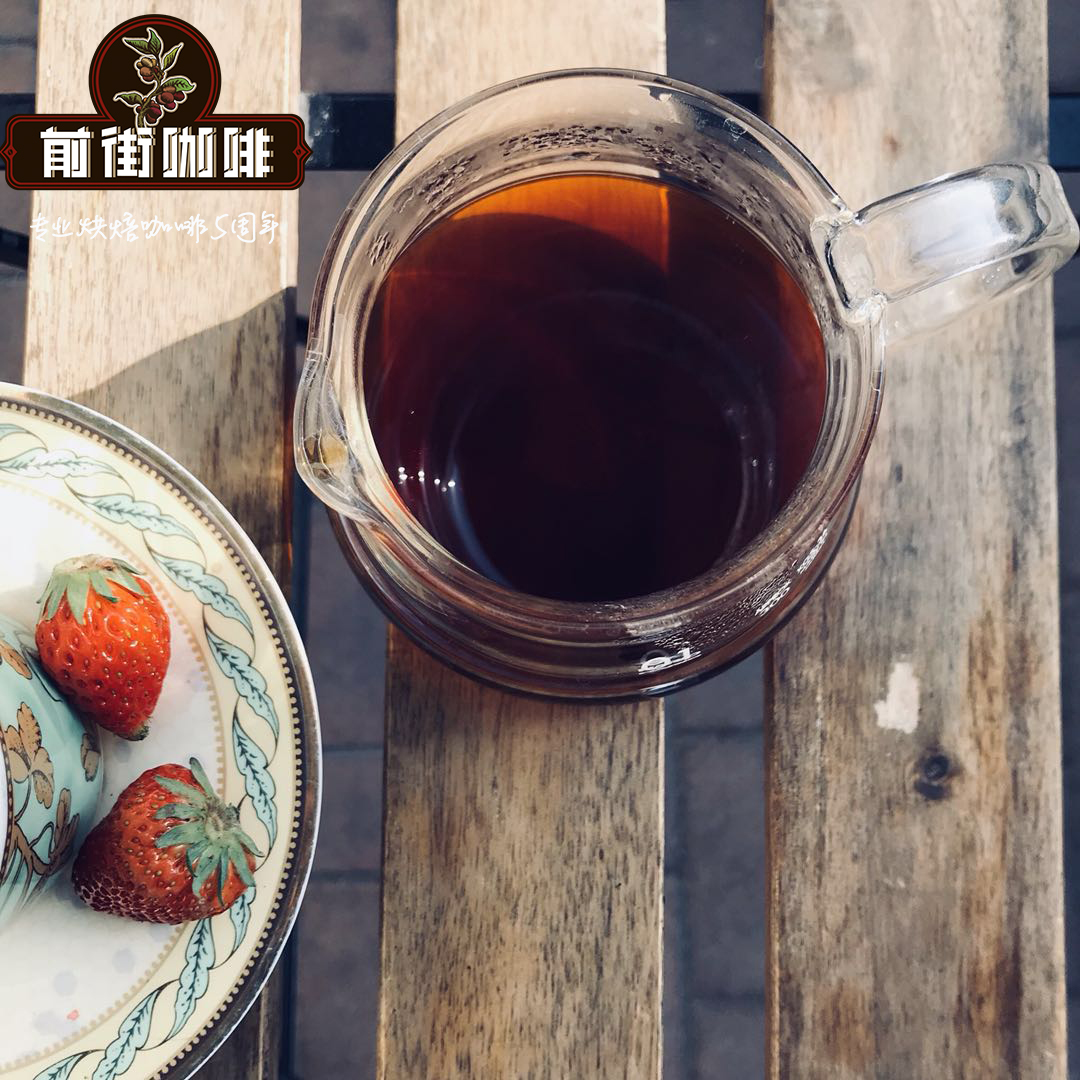Introduction to Cloud Manor in Antigua Coffee producing area of Guatemala _ Source of Antigua Coffee Flavor

Professional coffee knowledge exchange more coffee bean information please follow the coffee workshop (Wechat official account cafe_style)
Guatemala is located in the Central American isthmus, many volcanoes in the formation of high mountains and plateaus, the production of high-quality Central American high-altitude very hard coffee beans, the world's ninth largest producer of coffee beans. Coffee from five volcanic and three non-volcanic producing areas is very unique, with seven major producing areas, such as Antigua, Huehuetenango, Atitlan, Coban, Fraijanes, and Acatenango. When the coffee beans produced in Guatemala, which has seven major coffee producing areas, are all Arabica, they are all located on the highland topography in the subtropical climate, with rich and stable rainfall and fertile volcanic ash soil, which is very suitable for the natural environmental conditions of coffee cultivation.
Pacamara Pacamara is a hybrid gene of Pacas Pacas and Maragogype Arabica beans, so it has a huge tall tree shape and large raw beans, which is completely different from other Arabica and Robusta hybrid coffee. Pakamara's variety is characterized by lively sour taste, occasional biscuit flavor, occasional fruit flavor, thickness and greasy feeling. At present, the quality of Guatemalan coffee is the best. Guatemalan coffee inherits the stable quality of Sino-American coffee, which is soft, slightly sour and has good sweetness. At the same time, it also has its own characteristics: the fruity flavor is slightly sour and very soft; it is pure and smoky; it is as smooth as cream chocolate and is impressive; the dense feeling of coffee in the mouth gives the coffee a deep taste and a long finish.
Cloud Manor, which has been growing coffee since the 1970s, is located on the hillside of Antigua, Guatemala, on the hillside of the Alcatel Nanguo volcano, 1500 to 1800 meters above sea level, covering an area of 53 hectares, with an annual output of about 58 metric tons. It is a member of the Antigua Coffee Growers Association and the current owner Pedro Echeverria. The geographical environment here makes the manor surrounded by clouds all year round, so it is named Cloud Manor, and the moisture contained in the clouds surrounding the manor is absorbed by coffee trees. It also moistens the fertile soil of the volcanic zone.
The following four points are the main reasons for the unique micro-geography of Antigua coffee:
(1) Multi-functional volcanic fertile soil:
There are three major volcanoes in Antigua, Acatenango (Acatenango is also the name of the 8th producing area of Guatemala), Fuego, Agua Volcanoes, of which Fuego- is an active volcano, which brings fertile volcanic soil and unique volcanic pumice to the Antigua region for years, which is the coolant after the eruption of volcanic magma, with porosity and thermal insulation, and is very suitable for moisturizing in the soil, because the annual rainfall in Antigua is only about 1000 mm. In the eight major producing areas, the rainfall is relatively small, and enough water is needed for coffee growth. the moisturizing ability of volcanic pumice here can more or less make up for the lack of rainfall, and at the same time, it is matched with the common shade trees in this area. so that the water is not easy to lose and let the coffee fruit have a unique flavor.
(2) High density shade trees:
In addition to shading, it can also prevent frost damage and form a unique microclimate. For the shade trees of St. Raphael, she planted Gravilea, which shaded and grew fruits of economic value. Due to the cold night in Antigua District, there will be occasional low temperature or even frost damage from December to February. High-density shade trees will play their role to avoid frosting coffee trees. At the same time, the groundwater level in Antigua area is not deep, and shade trees are easy to absorb water. Form a microclimate suitable for plant growth with the surrounding coffee trees.
(3) severe temperature difference between day and night:
The temperature difference between day and night should be at least more than 10 degrees, which will help the sweetness and unique flavor of coffee berries.
(4) High altitude:
For coffee trees growing at high altitude, the beans are hard, the aroma of coffee is higher, and the flavor is more prominent. in the case of St. Raphael Manor, the average annual temperature is 23.C, the annual rainfall is 1000 mm, and the soil is clay, sandy soil and limestone. very balanced structure and fertile, relative humidity 65.
END
Important Notice :
前街咖啡 FrontStreet Coffee has moved to new addredd:
FrontStreet Coffee Address: 315,Donghua East Road,GuangZhou
Tel:020 38364473
- Prev

Congo Kahondo Kahondo processing plant introduced how to drink Congolese coffee?
Professional coffee knowledge exchange more coffee bean information Please follow Coffee Workshop (Wechat official account cafe_style) as the birthplace of coffee, Africa is a land covered with game beans, the African continent is well-deserved to produce some of the world's top coffee. African beans have a unique aroma, wild taste, mostly with a touch of sour red wine, such as Ethiopia's Mocha (
- Next

Guatemala Antigua Flower Manor washing / fresh roasting Fine Coffee beans Story
Professional coffee knowledge exchange more coffee bean information please follow the coffee workshop (Wechat official account cafe_style) a cup of Guatemalan Antigua coffee, seems to let us see the sudden disappearance of the mysterious Mayan multiply in the ancient land, history brushed their existence, history made their forever. The fertile volcanic soil of Guatemala breeds a unique flavor.
Related
- Detailed explanation of Jadeite planting Land in Panamanian Jadeite Manor introduction to the grading system of Jadeite competitive bidding, Red bid, Green bid and Rose Summer
- Story of Coffee planting in Brenka region of Costa Rica Stonehenge Manor anaerobic heavy honey treatment of flavor mouth
- What's on the barrel of Blue Mountain Coffee beans?
- Can American coffee also pull flowers? How to use hot American style to pull out a good-looking pattern?
- Can you make a cold extract with coffee beans? What is the right proportion for cold-extracted coffee formula?
- Indonesian PWN Gold Mandrine Coffee Origin Features Flavor How to Chong? Mandolin coffee is American.
- A brief introduction to the flavor characteristics of Brazilian yellow bourbon coffee beans
- What is the effect of different water quality on the flavor of cold-extracted coffee? What kind of water is best for brewing coffee?
- Why do you think of Rose Summer whenever you mention Panamanian coffee?
- Introduction to the characteristics of authentic blue mountain coffee bean producing areas? What is the CIB Coffee Authority in Jamaica?

